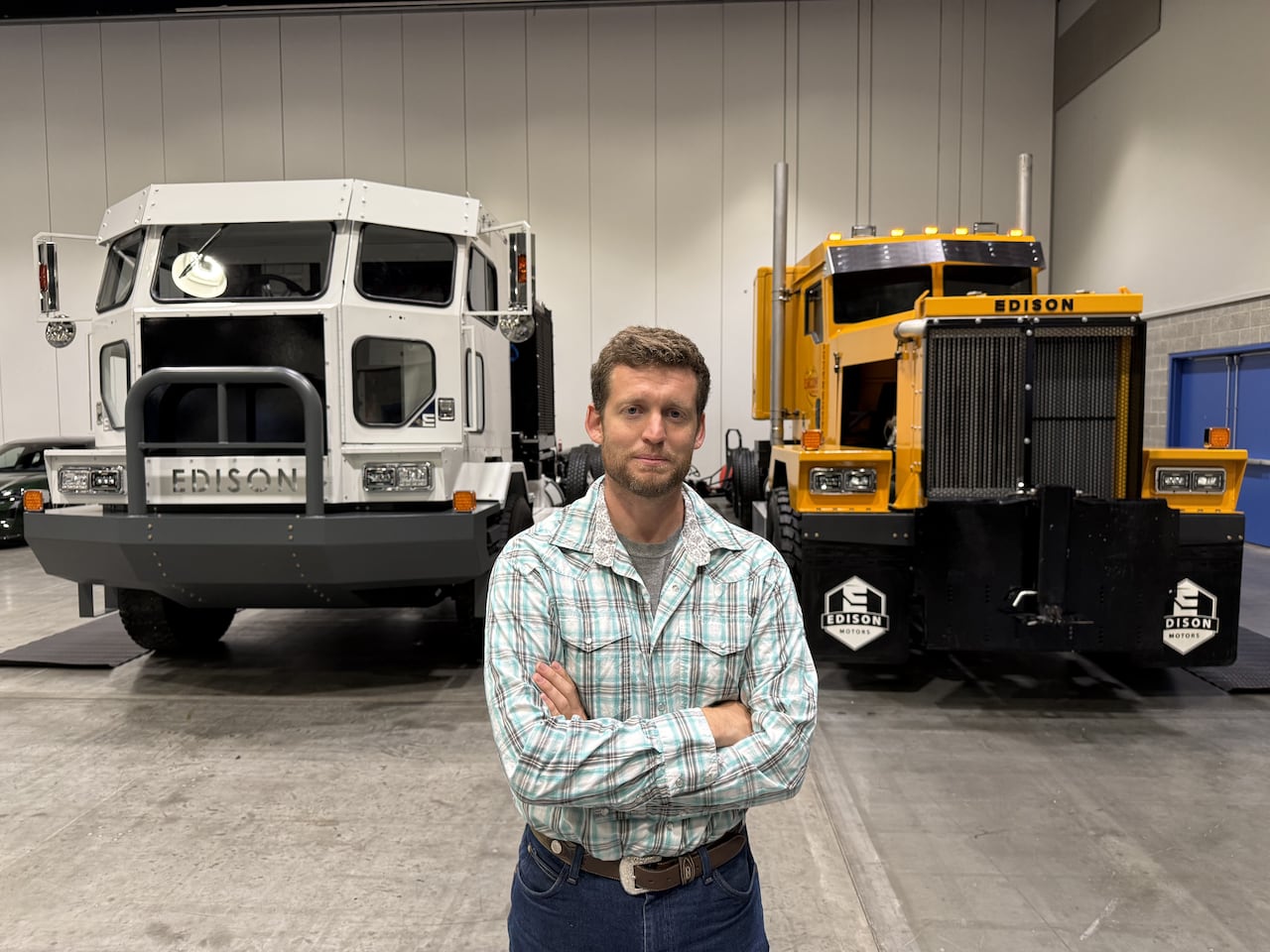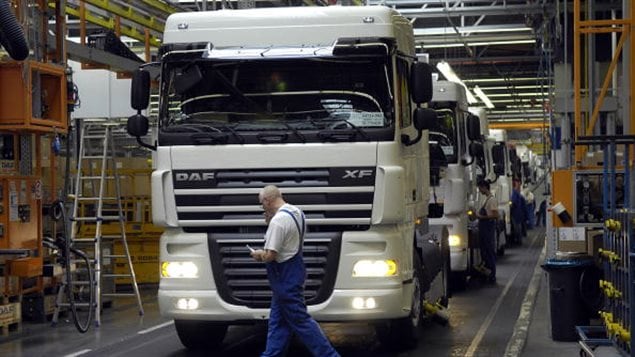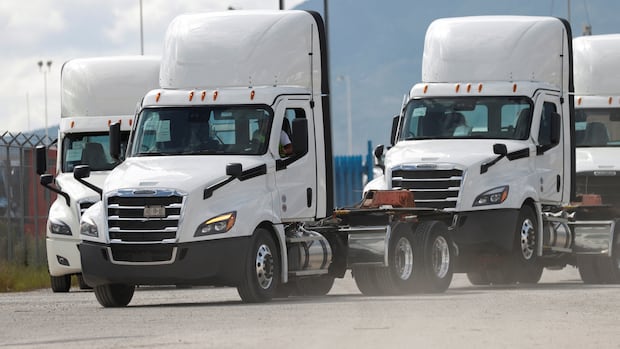As a fresh slate of tariffs on heavy trucks and buses takes effect, industry players say the companies that make those vehicles in Canada will be feeling pain.
Starting today, all foreign imports of medium and heavy-duty trucks and truck parts headed to the U.S. will be tariffed at 25 per cent, and buses at 10 per cent. The new rules leave carveouts for trucks traded under the Canada-U.S.-Mexico Agreement, however — the 25 per cent tariff will only apply to their non-American parts.
U.S. President Donald Trump and his administration have justified these tariffs by arguing that relying on imported trucks, parts and buses poses national security risks.
“We need our Truckers to be financially healthy and strong, for many reasons, but above all else, for National Security purposes!” Trump said in a Truth Social post in September when he announced the tariffs (which he initially said would go into effect Oct. 1).
The move means tough times for truck makers that trade vehicles and parts between Canada an the U.S. — like Edison Motors in Golden, B.C., whose president and founder Chace Barber called the new tariffs “disheartening.”

“It’s going to be a lot harder to sell into the U.S. right now,” Barber told CBC News. He says a handful of his shipments will be hit by these tariffs, which could add upwards of $100,000 to the cost of the finished heavy-duty semi trucks it makes and sell.
“We can’t eat that cost; it has to go on to the customer. We’d be selling trucks for free or giving money away if we ate the tariffs.”
Already trouble in trucking industry
Compared to other industries, heavy truck and bus production is a small sector within Canada. In 2024, Canada exported about $5 billion worth of trucks to the U.S., and imported just under $9 billion worth, according to Canadian government data.
But Dennis Darby, president and CEO of Canadian Manufacturers & Exporters, says the losses still matter a lot to the 20,000 or so people employed in the sector across the country.
“It’s not the same scale as the auto industry … but it has an effect in towns across the country,” Darby said.
Companies like Paccar, which makes big trucks in Quebec, already announced layoffs — 175 jobs were cut in July, and another 300 were announced earlier this month.
“It’s … very stressful for our members and their family,” said Daniel Cloutier, Quebec director for Unifor, which represents workers at Paccar’s plant in Sainte-Thérèse, Que. “There’s nothing at this moment that gives us a bit of hope. We just cross our finger[s].”
Paccar didn’t reply to CBC News’ request for comment in time for publication.

A spokesperson for bus maker Prevost said the company did…
Read More: Tough times for truck and bus makers as new tariffs go into effect



